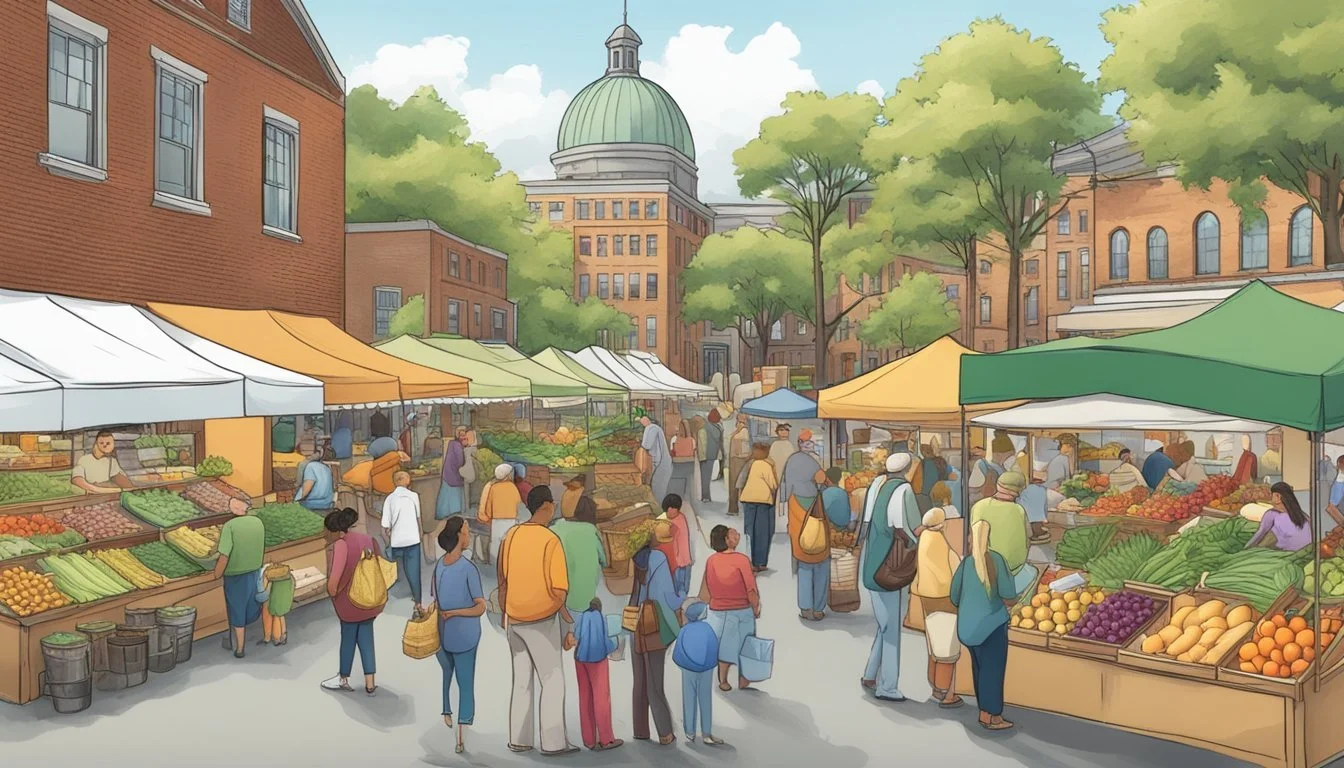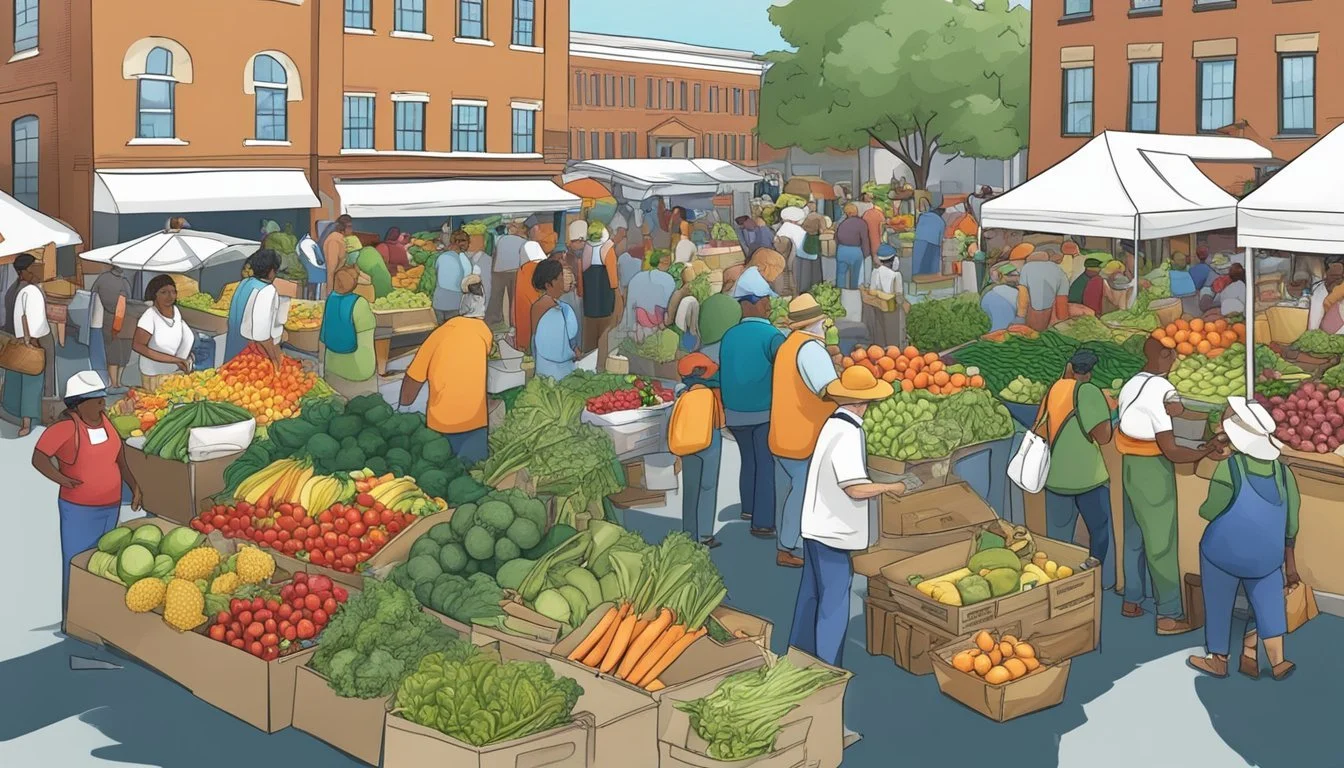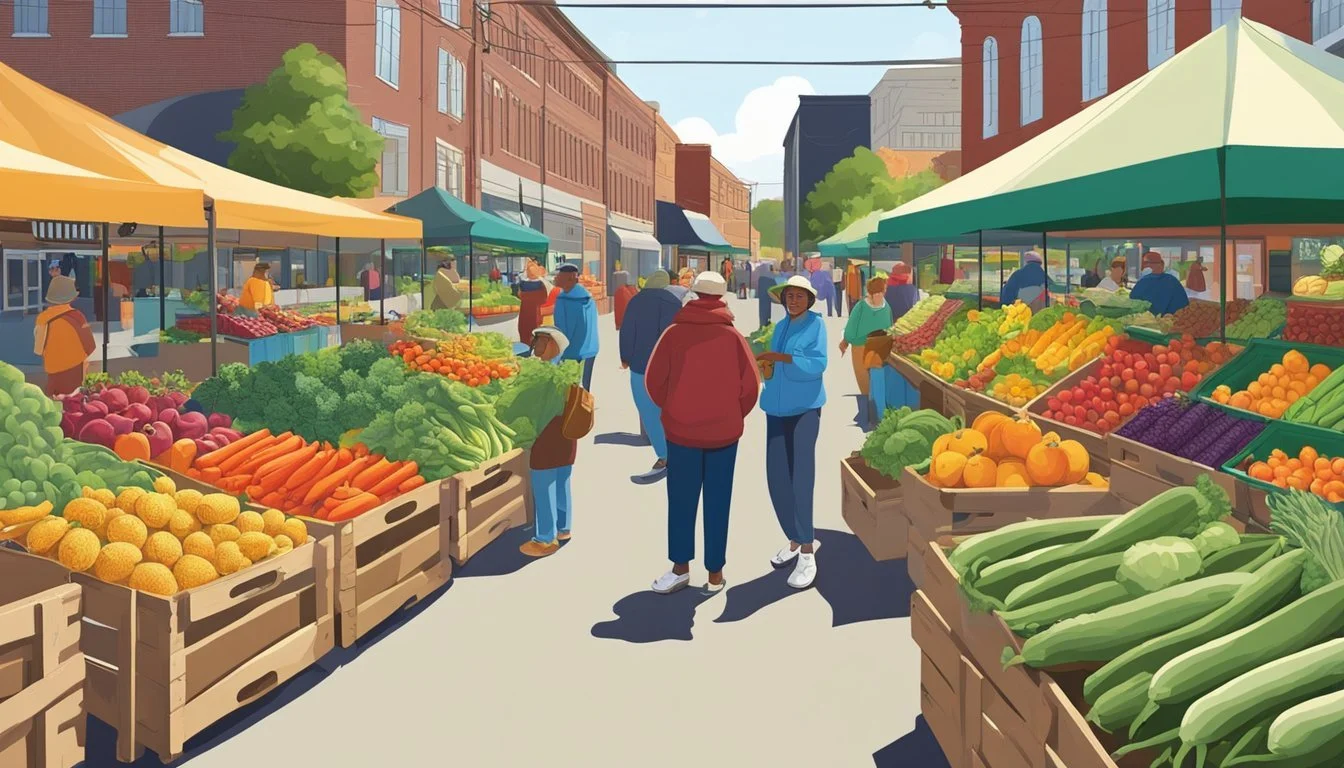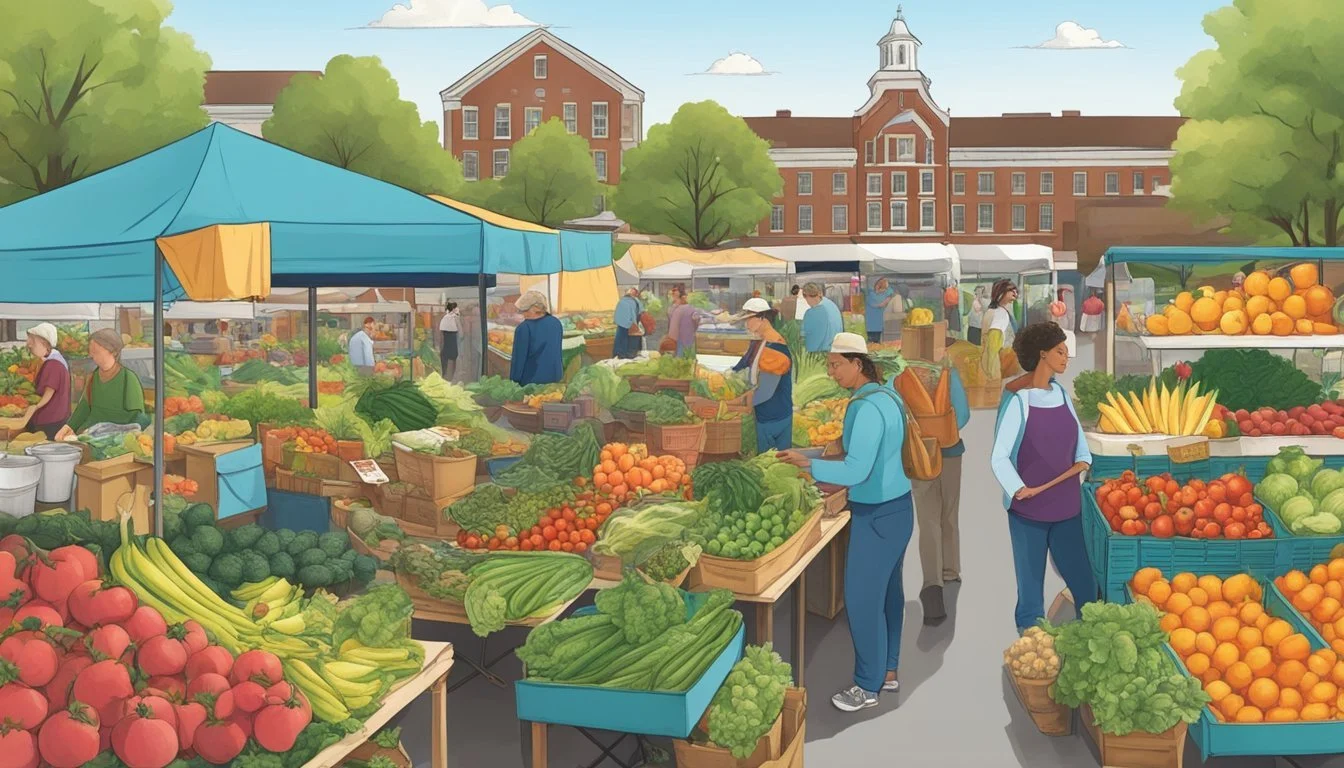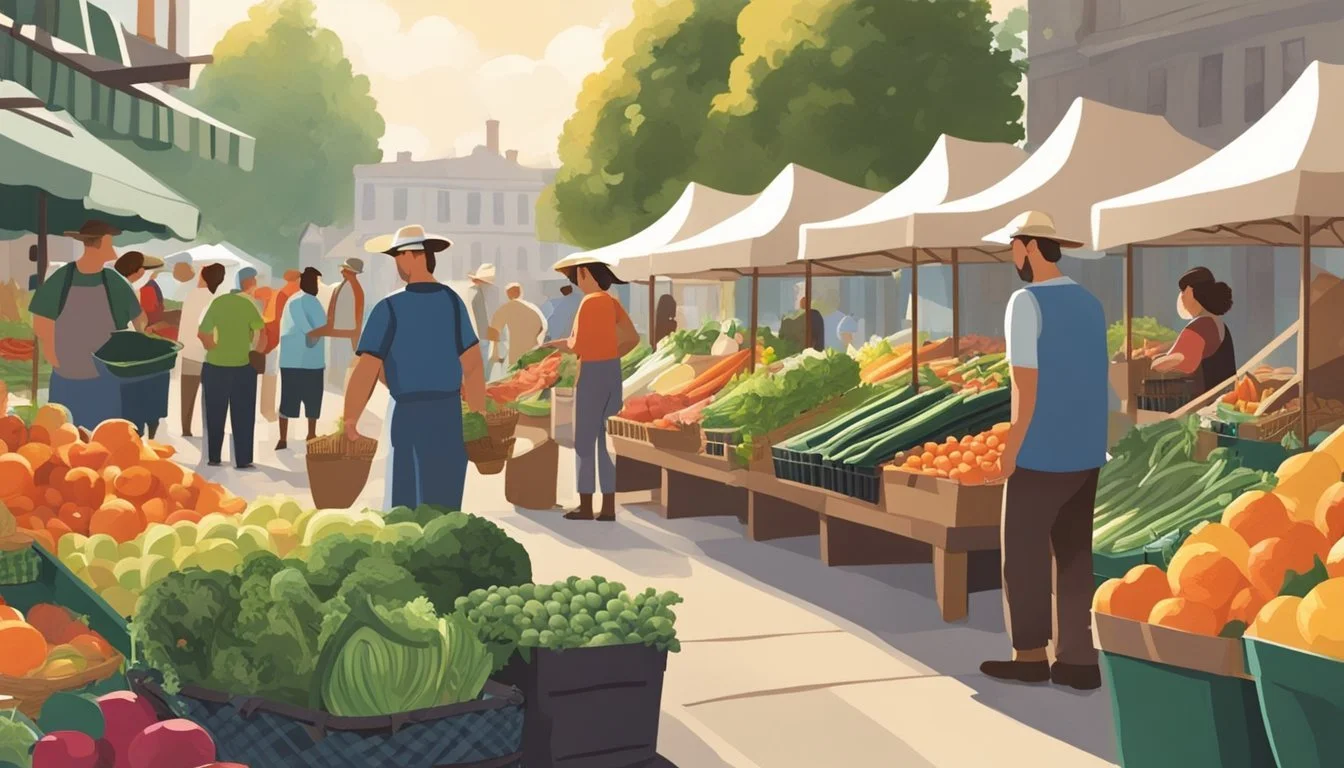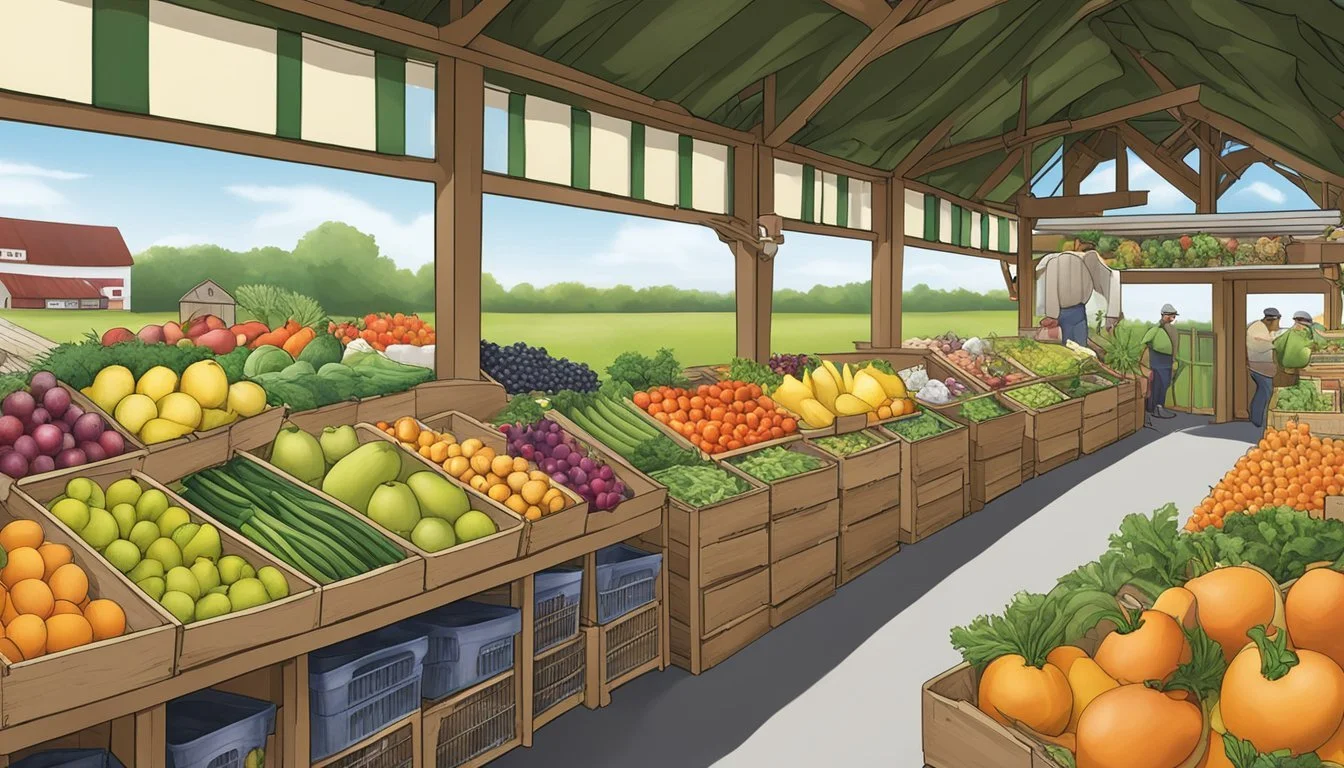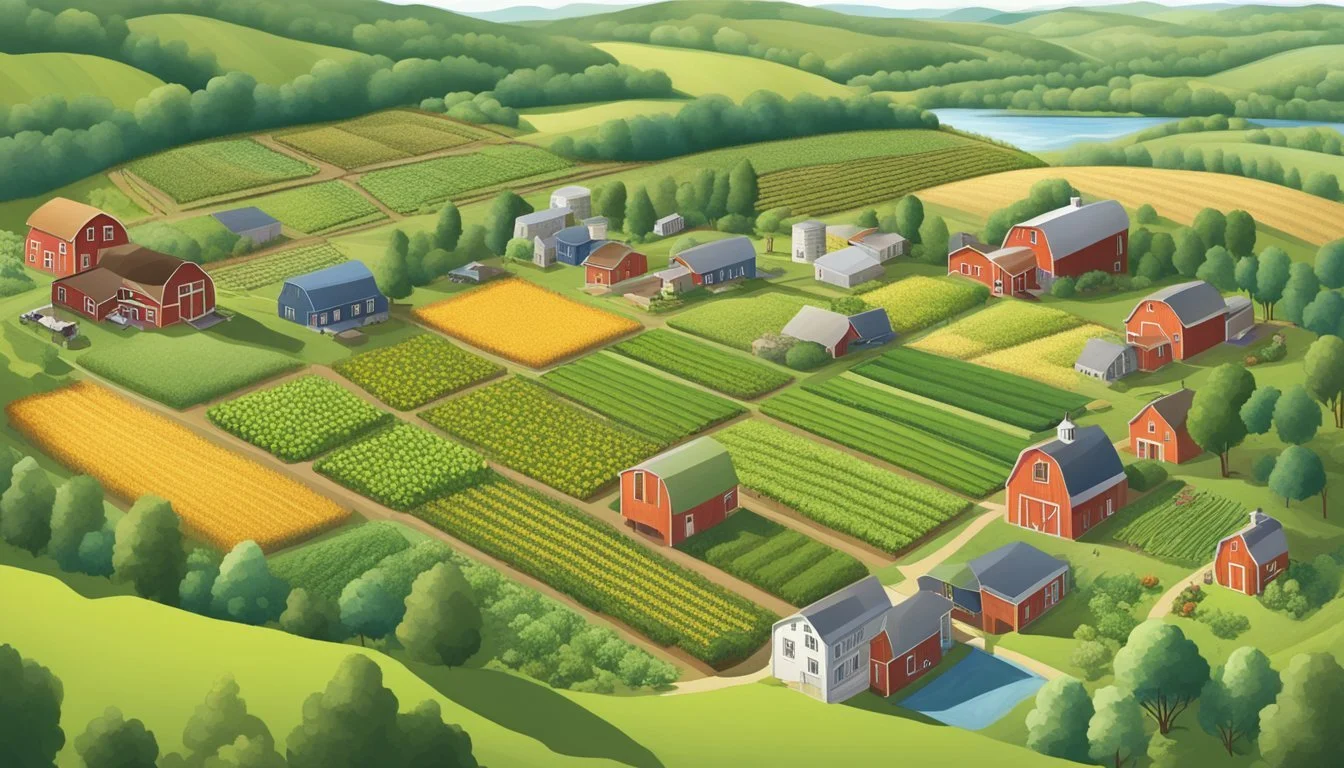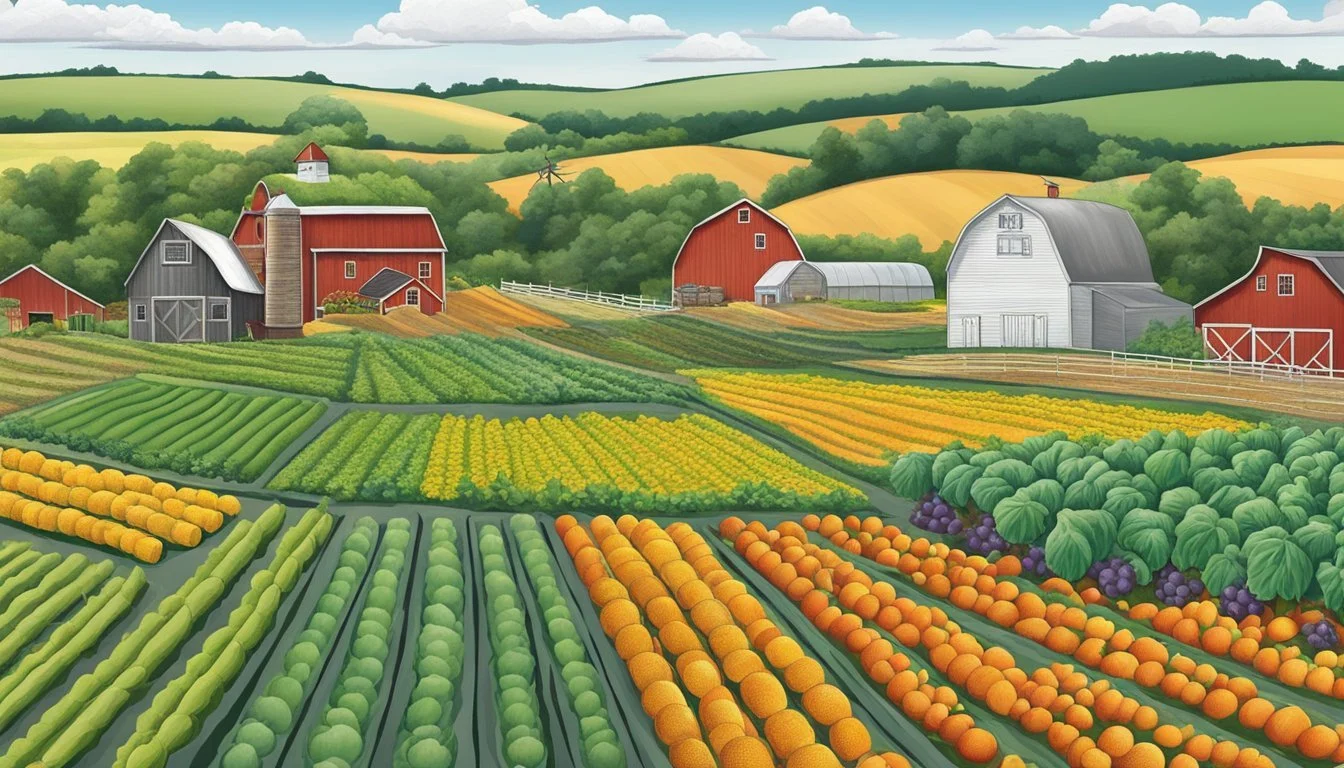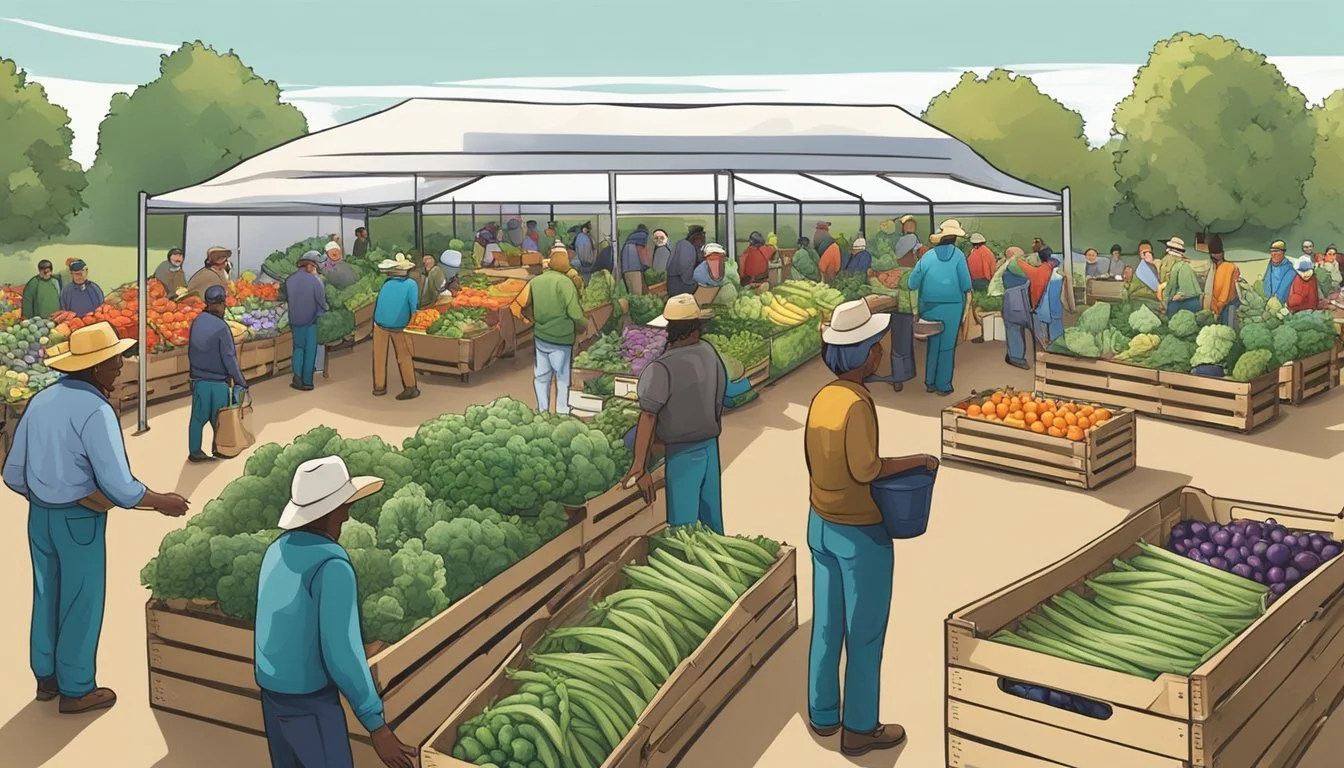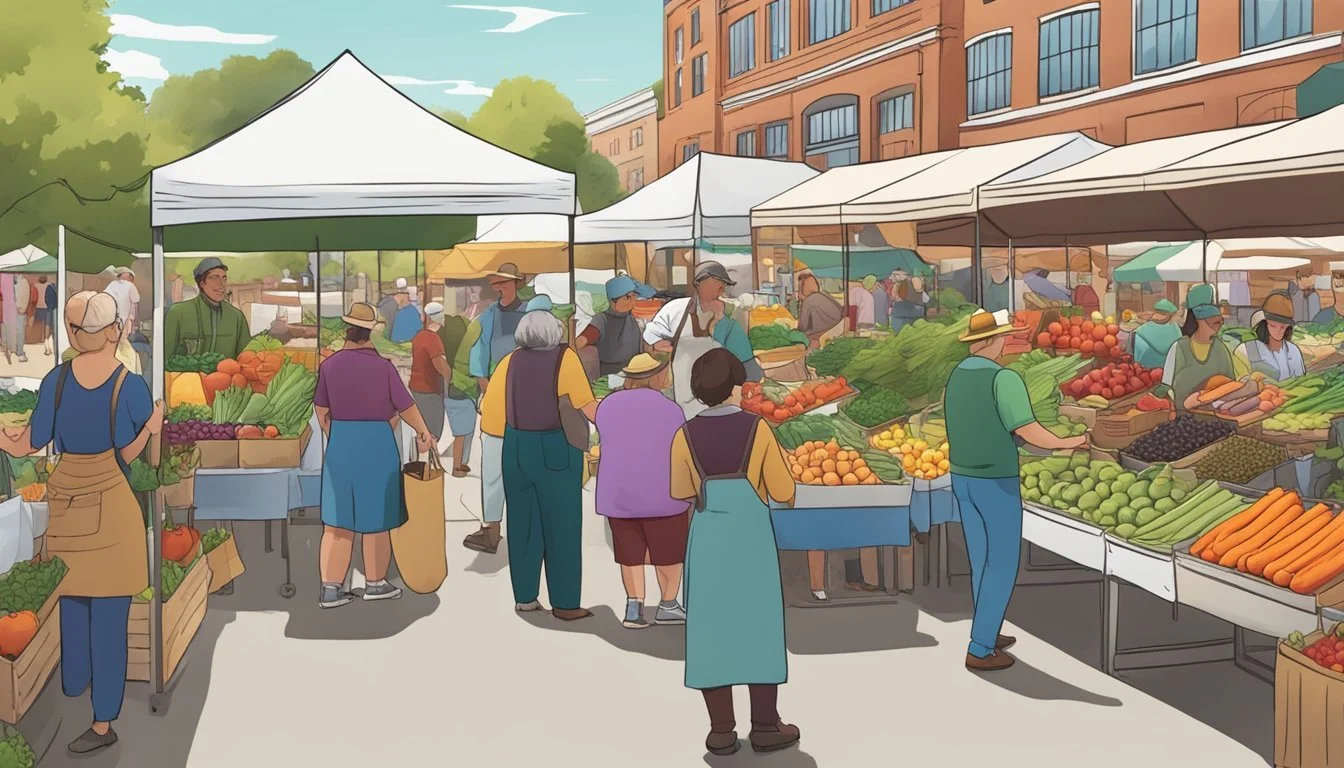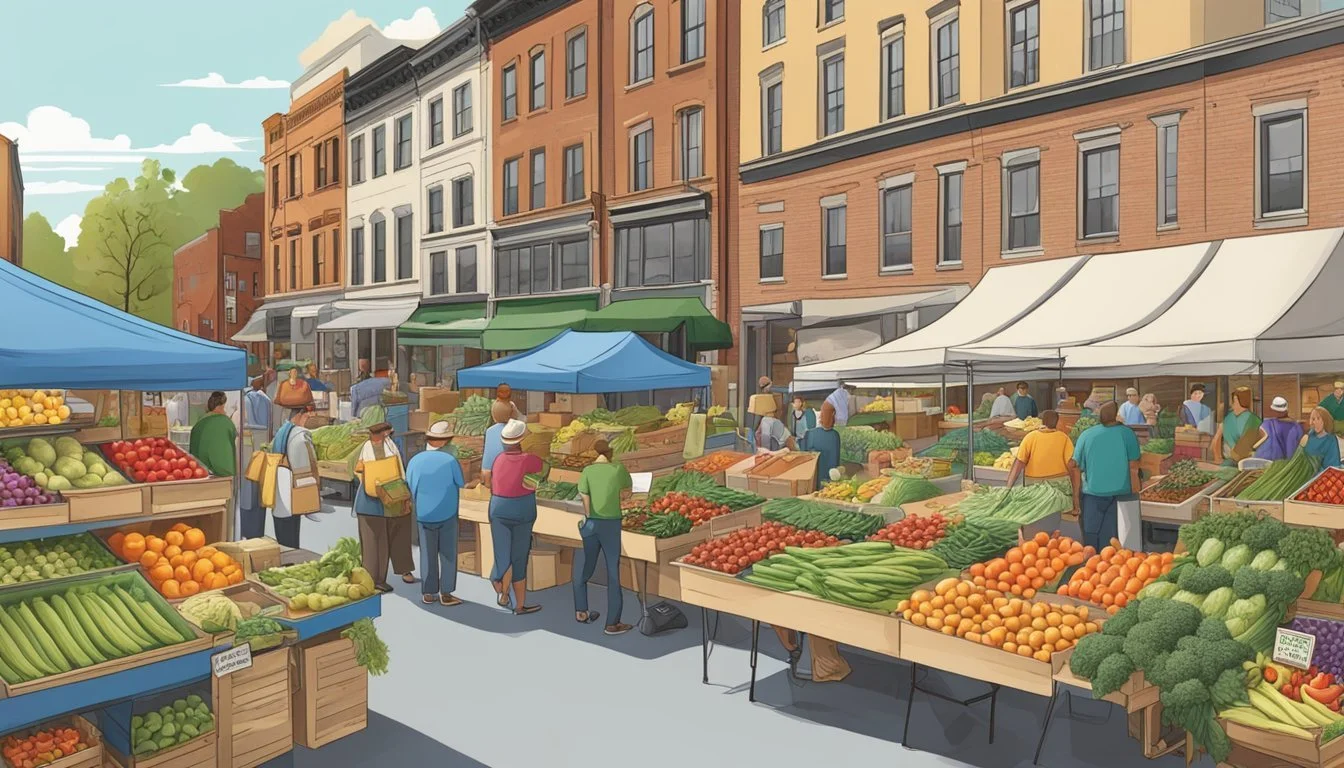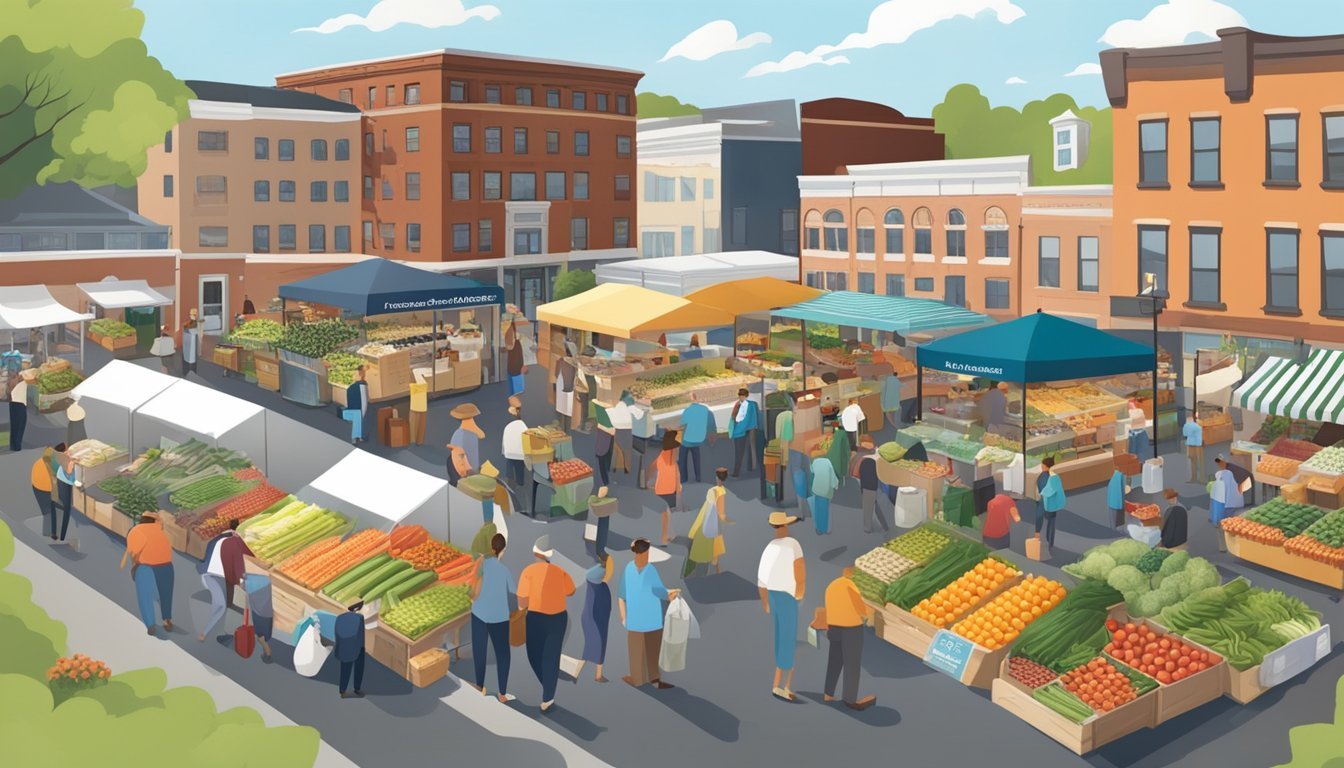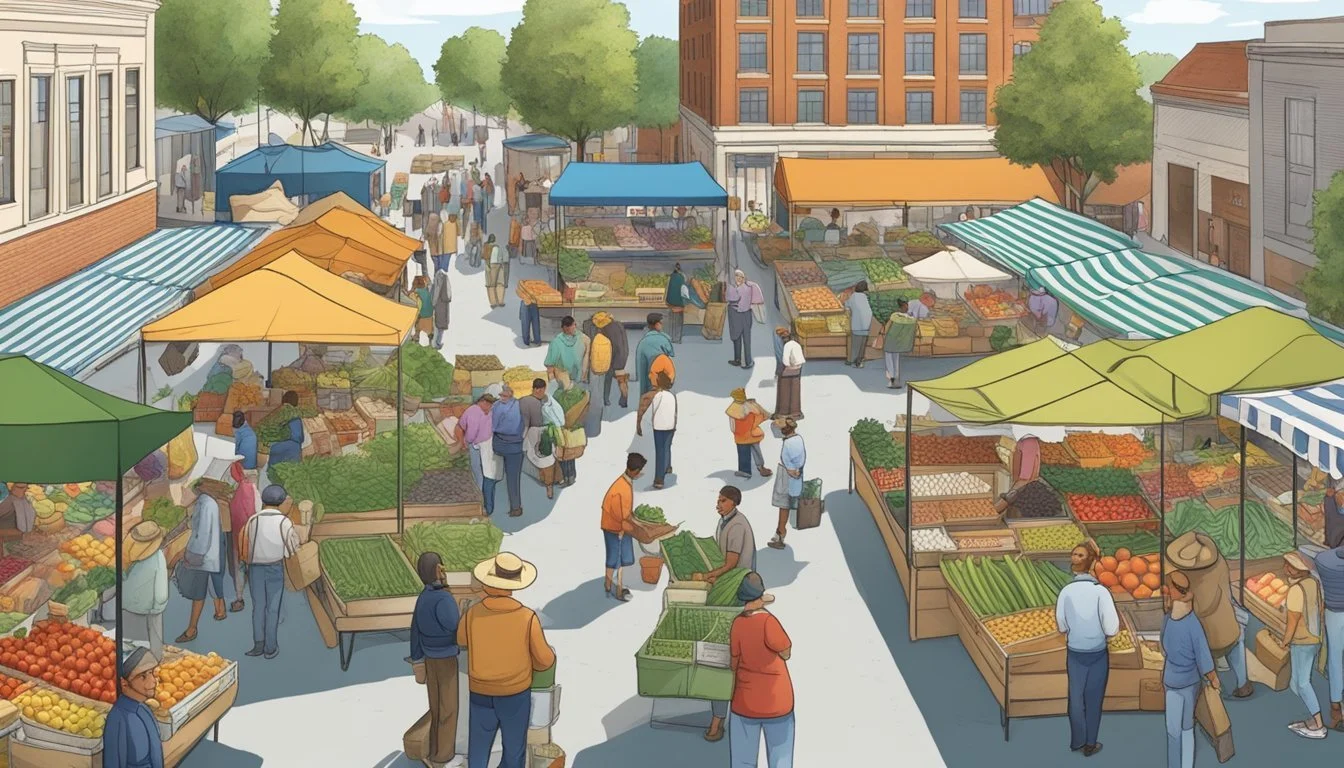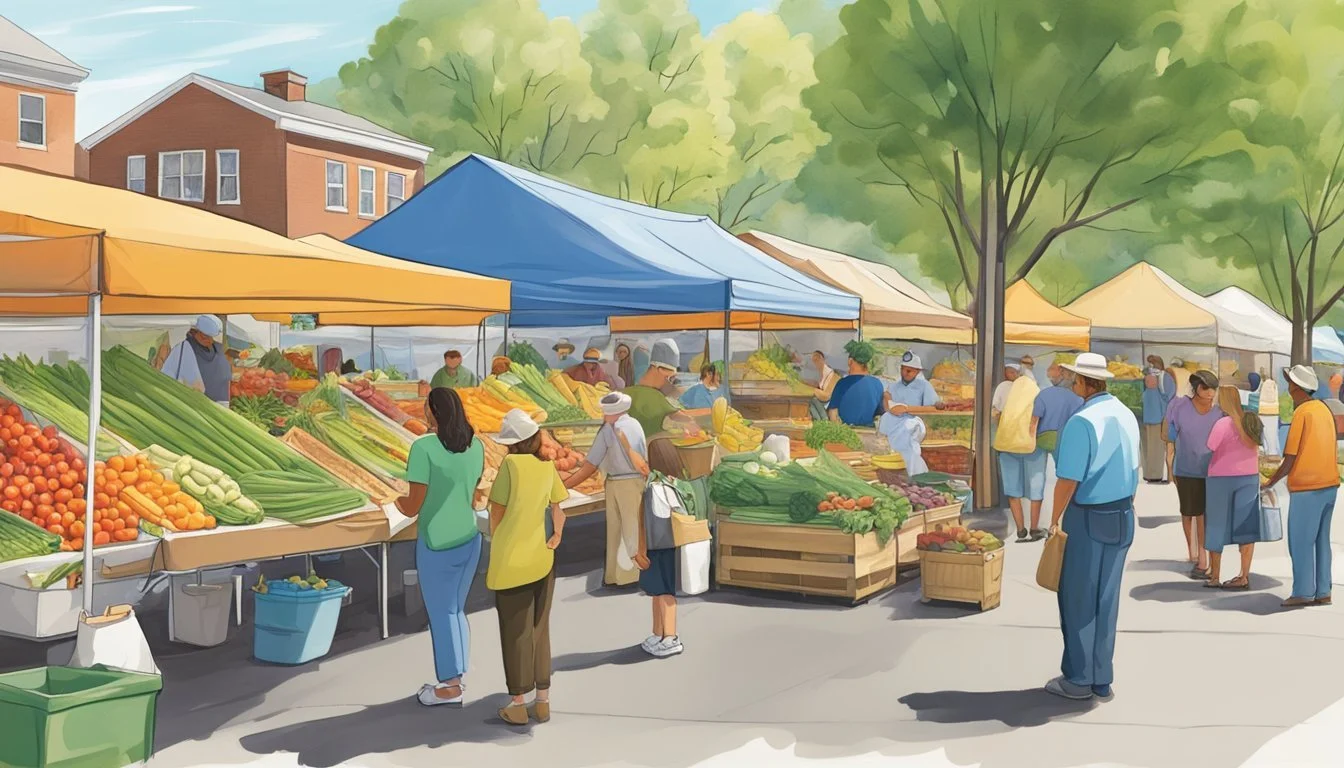Community Supported Agriculture (CSA) in Springfield, MA
A Guide to Local, Fresh Produce Options
Community Supported Agriculture (CSA) constitutes a pivotal link between Springfield, MA residents and their local food system. This model allows consumers to purchase seasonal "shares" from local farms, ensuring them a portion of fresh produce and other farm products throughout the growing season. Springfield's engagement with CSA programs reflects a community-wide commitment to supporting sustainable agriculture and bolstering the local economy.
In Springfield and the surrounding area, several farms offer CSA shares that often include a diverse array of vegetables, fruit, and herbs. Consumers typically subscribe at the onset of the growing season and, in return, receive weekly deliveries or pickups of farm-fresh goods. This direct-to-consumer approach not only fosters a relationship between the farmer and the community but also educates the public about the rhythms of farming and seasonal produce availability.
Farmers in the Springfield area have cultivated CSA models that cater to various community needs, including full shares for families, subsidized options for lower-income individuals, and senior-citizen shares. These customizable memberships highlight the adaptability of CSAs to serve a broader audience, ensuring fresh, locally sourced food is accessible to more people while maintaining the farms' economic viability.
What Is Community Supported Agriculture (CSA)?
Community Supported Agriculture (CSA) represents a significant shift in the way consumers engage with agriculture and purchase their produce in Springfield, MA. It offers a forward-thinking model that connects local farms with the community.
Definition and Origins
Community Supported Agriculture (CSA) developed as an alternative to commercial agriculture and is characterized by a partnership between farmers and consumers. The concept emerged in Japan in the 1960s, designed to counteract the negative impacts of industrial-scale agriculture. It has since spread globally, with each region adapting the model to fit local agricultural practices and consumer needs.
CSA Structure and Share Model
In a CSA, community members purchase shares of a farm's harvest in advance. These shares, also known as memberships or subscriptions, provide the farmers with a reliable income source at the start of the farming season. Shareholders then receive portions of the farm's produce periodically, often weekly or bi-weekly, throughout the harvesting season. This model facilitates a deeper connection between consumers and their food sources, often including organic and sustainably farmed options.
Share Types: Varies; often includes fruits, vegetables, eggs, and dairy.
Distribution: Regular intervals (commonly weekly).
Benefits: Encourages local, organic farming; reduces shipping and processing.
By joining a CSA, members actively support local farmers, ensuring the sustainability of small-scale, organic farming operations in and around Springfield.
Benefits of Joining a CSA
Joining a Community Supported Agriculture (CSA) program provides tangible benefits for both consumers and farmers in Springfield, MA. This direct farm-to-table model facilitates stronger community ties and ensures access to fresh, organic produce for members.
For Consumers
For consumers, a CSA offers the assurance of regularly accessing fresh food. Springfield members receive a weekly share of organic vegetables and other farm products straight from local farms. This system not only contributes to a healthier lifestyle through nutrient-rich offerings but also fosters a sense of community among the members and the farmers. Participants in a CSA also share in the risk of farming, which means they experience the authentic fluctuations of agricultural yields.
Local and Seasonal Produce: Consumers enjoy fruits and vegetables at the peak of their flavor and nutritional value.
Supporting Local Economy: Membership fees go directly to local farmers, strengthening the community’s economy.
For Farmers
For farmers, a CSA constitutes a vital source of stable income and creates enduring relationships with consumers. This model allows them to plan better and allocate resources more efficiently by knowing they have a guaranteed market for their produce. Moreover, by minimizing the reliance on a broad supply chain, these local entrepreneurs reduce waste and ensure quality control.
Financial Security: Pre-season capital, thanks to member subscriptions, helps with the farm’s cash flow.
Community Engagement: A CSA engages farmers with their customer base, forging bonds that transcend traditional business interactions.
By investing in a CSA, Springfield residents partake in a sustainable agricultural model that benefits both their health and the local economy, while farmers gain a dependable income source and the joy of seeing their labors nourish their community.
List of CSAs in the Springfield, MA Area
Community Supported Agriculture (CSA) programs around Springfield, MA, offer fresh seasonal produce to members who subscribe. Local farms provide weekly deliveries or pick-ups of their harvest, sometimes requiring members to contribute work hours.
Yellow Stonehouse Farm
Yellow Stonehouse Farm in Westfield provides a variety of fresh produce through its CSA program. Members can pick up their shares at the farm or benefit from local farmers' markets where the farm participates.
Mountain View Farm
Located in Easthampton, Mountain View Farm offers seasonal CSA shares. They encourage potential members to reach out for share pricing, and the farm assures a season filled with fresh veggies.
Red Fire Farm
Red Fire Farm, with locations in both Montague and Granby, serves the Springfield area including Hadley and Northampton. This farm is known for an extensive selection of organic vegetables and fruits for CSA members.
Stone Soup Farm
Stone Soup Farm, situated in the Pioneer Valley, operates a CSA program serving the Hadley area. This farm focuses on sustainable farming practices and provides a range of organic produce to its members.
How CSAs Work
Community Supported Agriculture in Springfield offers a direct way for consumers to purchase seasonal food from local farmers. Membership commitments and payment structures are fundamental to CSA programs, ensuring mutual support between the community and growers.
Membership Signup and Fees
Individuals interested in joining a CSA in Springfield start by signing up for a membership. Farmers typically require that members pay for the season up-front, though some offer the flexibility of weekly or monthly payments. Various payment options are available, including cash, checks, and sometimes credit card transactions.
Weekly or Monthly Shares
Once a member, individuals receive portions of the farm's yield, known as shares, on a weekly or monthly basis. These shares usually consist of a variety of fresh produce such as vegetables, fruit, or herbs, and the content reflects the seasonal availability of crops.
U-Pick Options
Some CSAs incorporate a U-Pick component, where members are encouraged to visit the farm and pick their own produce. This option not only deepens the connection between members and the farm but also allows for hands-on involvement in the agricultural process.
Pick-Up or Delivery Methods
Members receive their shares through designated pick-up locations or through a delivery service. Each CSA has its designated days and locations for members to retrieve their shares. In some cases, farms may also collaborate with local businesses to establish convenient pick-up points for their customers.
Types of Products Offered by CSAs
Community Supported Agriculture (CSA) programs in Springfield, MA, offer consumers an assortment of locally sourced products. The cornerstone of these offerings is usually vegetables and fruit that are seasonal and harvested at their peak of freshness. CSA subscribers can expect a diverse variety of produce that often includes leafy greens, root vegetables, berries, and orchard fruits.
Beyond produce, many CSAs provide herbs, which are essential for culinary uses and often grown organically alongside vegetables. Fresh herbs like basil, cilantro, and thyme may be included, enhancing the flavor profile of any meal.
For those seeking animal products, some CSAs extend their inventory to include meat, milk, and eggs. Meats offered can range from poultry to beef, all coming from animals raised on local pastures. Freshly laid eggs and milk from CSA farms are also a testament to the freshness and direct farm-to-table connection that these programs strive to maintain.
Organic options are increasingly available as more consumers demand produce free from synthetic pesticides and fertilizers. CSAs often employ sustainable farming practices, and while not all farms are certified organic, many adhere to organic principles.
Occasionally, CSAs also indulge their members with beautiful flowers, which add aesthetic value as well as biodiversity to the farms. CSA members might receive bouquets as part of their share during the blooming season.
To summarize, CSAs in Springfield provide:
A variety of vegetables and fruit
Fresh, aromatic herbs
Optionally, meat, milk, and eggs from responsibly raised animals
Organic produce in line with sustainable farming practices
Seasonal flowers to brighten up the home
Through these varied offerings, CSAs continue to connect the community to their local agricultural roots and sustainability.
Organic and Sustainable Farming Practices
Community Supported Agriculture (CSA) in Springfield, Massachusetts, showcases a commitment to organic and sustainable farming practices. These farms prioritize the health of both consumers and the environment. Organic farming refers to the cultivation of produce without the use of synthetic pesticides, herbicides, or genetically modified organisms (GMOs).
Local CSAs adhere to these principles:
Non-GMO Crops: They cultivate crops that are not genetically altered, maintaining agricultural diversity.
Herbicide and Pesticide Restrictions: Synthetic chemicals are replaced with natural alternatives, promoting a safer ecosystem.
To maintain soil health and conserve resources, the following sustainable measures are employed:
Crop Rotation: Enhancing soil vitality and reducing pests and diseases.
Cover Cropping: Protecting soil from erosion while improving fertility.
Reduced Water Use: Employing drip irrigation and other water-efficient methods.
Energy Conservation: Using renewable energy sources and minimizing fuel usage.
The farms operate transparently, allowing members to witness the cultivation methods firsthand. This transparency builds trust and supports an informed community fully aware of the origins of their food.
In conclusion, Springfield's CSA farms exemplify an eco-friendly approach to agriculture, ensuring that members receive fresh, seasonal produce grown with the care that benefits both people and the planet.
Seasonality and Variability in CSAs
Community Supported Agriculture (CSA) programs in Springfield, MA showcase a direct connection between local farmers and consumers. The variety and volume of produce consumers receive through CSA shares are subject to changes with the growing season.
Growing season: CSA members should anticipate variations in their weekly shares. The season typically begins in late spring and extends into early fall. However, the start and end of the growing season can shift due to weather patterns, impacting the duration members receive shares.
Variety: With the progression of the season, there is a transition in the types of produce available. Early shares might include leafy greens and herbs, while mid-season sees an abundance of tomatoes and zucchini, transitioning to root vegetables and squashes as the weather cools.
Weather: Weather plays a pivotal role in agriculture, affecting yield and quality. Unpredictable conditions such as droughts or excessive rainfall can impact the variety and quantity of produce available in CSA shares.
Shares:
Spring: expect greens, peas, radishes
Summer: tomatoes, peppers, cucumbers
Fall: carrots, potatoes, apples
Consumers should be prepared for this natural ebb and flow. Many CSA farms in Springfield encourage this understanding, as it fosters a close relationship between consumer and food source. Through this model, consumers become a part of the local food system, accepting both its gifts and limitations.
Connecting with Local Agriculture
Community Supported Agriculture (CSA) programs around Springfield, MA, offer residents the opportunity to deeply connect with local agriculture. Through farm visits, volunteering, and community events, members can engage with where their fresh food comes from and foster a sense of community.
Farm Visits and Events
Carr Family Farm in Stafford, CT invites the public to visit their self-serve farm stand from April 13 through October 26, 2024. They announce updates on available products through their social media channels. Visiting a farm provides tangible insight into the efforts behind local agriculture and allows individuals to witness the cultivation of the fresh food they receive.
Open Hours: Daily, 8:00 AM - 7:00 PM
Contact: Updated via Facebook and Instagram
Volunteering Opportunities
Many farms offering CSA shares encourage their members to volunteer, furthering their connection with the farming process. Volunteering allows individuals to contribute to the growth of their food and understand the intricacies of farming.
Mountain View Farm in Easthampton, MA
Phone: 413-329-0211
Next Barn Over Farm in Hadley, MA
Phone: 413-461-8444
These farms appreciate the helping hands and offer opportunities that can vary from planting to harvesting.
Community Events
Farms often host events aimed at educating the community about sustainable practices and celebrating the harvest. Such events strengthen community bonds and spread awareness of the importance of local agriculture.
Event Types: Harvest festivals, educational workshops, seasonal celebrations
Find Events: Check individual farm websites or contact farms directly for schedules
Challenges and Considerations
When engaging with Community Supported Agriculture (CSA) in Springfield, MA, individuals and families consider both environmental uncertainties and the financial implications of their commitments.
Weather and Crop Risks
In Springfield, CSA participants should be aware that weather greatly influences agricultural yields. Farms face challenges such as:
Droughts or excessive rainfall, which can lead to crop failure.
Unpredictable frosts or heatwaves, which may occur outside the expected seasons.
These environmental factors contribute to shared risk, where both farmers and consumers are affected by changes in crop viability.
Financial Commitment
For consumers, the financial commitment to a CSA involves:
An upfront investment in a farm's seasonal production.
Understanding that this investment is not a guarantee of produce but a share in both the bounty and scarcity.
This model sustains local agriculture, but requires members to be prepared for fluctuations in the quantity and variety of their share due to factors like weather.
Consumer Insights
Before one considers joining a CSA in Springfield, MA, it's essential for potential members to be well-informed about the structure and expectations of participating in a CSA. Understanding the commitment and the benefits helps ensure a positive experience for both the members and the farmers.
Questions to Ask Before Joining
Payment Structure: Inquire whether the farm prefers payment up-front for the season or if it accommodates weekly or monthly payments.
Work Requirement: Some CSAs require members to contribute a small number of work hours on the farm during the season.
Table 1: Key Questions for CSA Potential Members
Questions to Consider Why It Matters How are the shares delivered? To determine if the distribution is convenient for your schedule. What is the variety of produce included in the shares? To ensure the diversity of vegetables, fruit, or herbs meets your needs. What happens if I am unable to pick up my share? To understand the CSA's policy on unclaimed shares.
Expectations for CSA Members
Pick-up or Delivery: Members typically receive a weekly delivery or pick-up of fresh produce.
Share Contents: The contents of CSA shares include vegetables, fruit, or herbs, and the variety may change seasonally.
Members should be prepared to embrace seasonality and variety, which sometimes means receiving new or unfamiliar produce. It is a shared journey with the farm, understanding that nature influences the bounty available throughout the growing season.
CSA and Local Economy
Community Supported Agriculture (CSA) programs play a pivotal role in bolstering the local economy of Springfield, MA. Local agriculture benefits from a direct revenue stream, wherein residents purchase "shares" of a farm's harvest in advance. This model offers farmers upfront capital at the beginning of the growing season, allowing them to plan and budget more effectively.
By investing in CSA shares, the community directly supports small farms, stabilizes their income, and reduces financial risks associated with farming. A thriving CSA system contributes to the local food economy by keeping agricultural funds within the area. It helps in creating jobs and supports the sustainability of local farms.
Participation in farmers markets further expands the economic impact. Local producers gain access to a broader customer base, and the cycle of money remains primarily within the community. Farms like Mountain View Farm and Next Barn Over Farm provide fresh produce to Springfield's residents, linking consumers with the source of their food.
Through CSAs and farmers markets, consumers have the opportunity to foster a symbiotic relationship with local farms. This interconnectedness between local agriculture and community members promotes a robust economy centered on sustainability and local commerce.
Economic Benefits Description Direct Capital CSA prepayments provide immediate funds for farm operations. Risk Mitigation Financial stability for farmers with assured sales. Local Job Creation Farm growth sustains and creates new employment. Sustainable Practices Encourages ecologically responsible farming methods.
These structural economic advantages demonstrate the significance of CSA programs in reinforcing the vitality of regional agriculture.
Further Resources
This section provides readers with additional materials and direct contacts to enhance their understanding and participation in the CSA movement within the Springfield, MA area, particularly in Hampden County.
Educational Articles
For those looking to deepen their knowledge about Community Supported Agriculture, a variety of educational articles are available. These articles address the relationship between consumers and farmers, the benefits of participating in a CSA, and the specific impacts on local communities. Readers may access an array of articles through databases such as the Mass.gov website or specific CSA farm websites in the region.
Contact Information for Local CSAs
Individuals seeking to join a CSA in Hampden County can reach out directly to local farms. Below is a selection of farms along with their contact information:
Farm Name Contact Number Location (City/Town) Mountain View Farm 413-329-0211 Easthampton, MA Next Barn Over Farm 413-461-8444 Hadley, MA
For additional CSA options near Springfield, contacting the LocalHarvest organization at 413-562-2164 can provide further assistance. They offer a comprehensive directory of farms and shares available in the area.
Conclusion
Community Supported Agriculture (CSA) represents a sustainable model of food production and consumption. By enabling consumers to purchase shares of a farm's harvest, CSA fosters a direct relationship between the community and local farmers. This relationship strengthens the local food system and encourages environmental stewardship.
In Springfield, MA, the CSA model has seen a positive reception, aligning with the community's values of supporting local agriculture and sustainable practices. Members often subscribe to a season's worth of agricultural output, which provides them with fresh, locally-sourced produce while offering farmers financial security.
The CSA format in Springfield goes beyond mere transactions; it includes options for member involvement on the farms. This interaction further cements the connection between consumers and their food sources, providing educational opportunities regarding where and how their food is grown.
It is evident that Springfield's CSA programs contribute to the local economy, reduce food miles, and promote a healthier diet through access to fresh produce. As a forward-thinking agricultural system, CSA in Springfield stands as a testament to the community's dedication to sustainability and resilience in its food systems.

